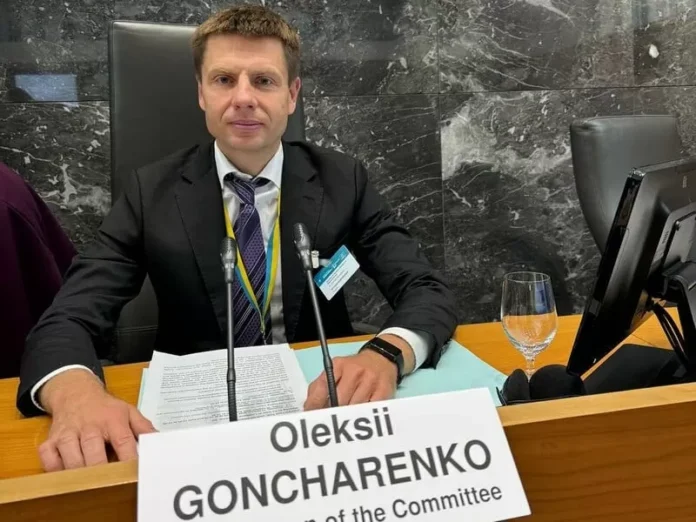Ukrainian MP from «European Solidarity» party Alexey Goncharenko reported on January 6 via Telegram that he was «cut off from the air of a Turkish TV channel because of his t-shirt». This incident has sparked a heated debate about freedom of expression and censorship in Ukraine.
According to Goncharenko, he was invited to participate in a political talk show on Turkey’s Kanal D, where he was supposed to discuss Ukraine’s relations with Turkey. However, as soon as he appeared on the screen, the producers of the show asked him to remove his t-shirt, which had a slogan «Crimea is Ukraine» written on it. When Goncharenko refused to comply, he was cut off from the program.
The MP took to his social media to share the incident, stating that he was «outraged and shocked» by the actions of the Turkish TV channel. He also expressed his disappointment that a country like Turkey, which proclaims itself as a democratic nation, would resort to such censorship.
The incident has caused a wave of reactions from both Ukrainian and international media, with many condemning the censorship and expressing support for Goncharenko. The Ukrainian Foreign Ministry also issued a statement, calling the actions of Kanal D «unacceptable and a violation of the freedom of speech».
This incident has once again brought attention to the issue of censorship in Ukraine. Despite being a democratic country, Ukraine has faced several incidents of censorship in recent years. In 2019, the Ukrainian comedy «Servant of the People» was removed from a Russian TV channel due to its political content. In the same year, a Ukrainian TV channel was fined for showing a film about LGBT rights. These incidents have raised concerns about the state of freedom of expression in Ukraine.
The Ukrainian government has taken steps to protect freedom of speech and ensure that censorship does not occur. In 2018, Ukraine adopted a law on information security, which aims to prevent censorship and protect media independence. However, critics argue that this law has been used to suppress dissenting voices and limit freedom of expression.
The incident with Goncharenko also raises questions about the relationship between Ukraine and Turkey. Turkey has been a strong supporter of Ukraine’s territorial integrity and has condemned Russia’s annexation of Crimea. However, this incident shows that there may be limitations to this support when it comes to criticism of the Turkish government.
Despite the negative experience, Goncharenko remains positive and hopes that this incident will spark a dialogue about censorship in Ukraine. He stated that he is ready to continue working with the Turkish media, as long as his right to freedom of expression is respected.
In conclusion, the incident with Alexey Goncharenko’s t-shirt on a Turkish TV channel has once again brought attention to the issue of censorship in Ukraine. It has sparked a debate about the state of freedom of expression in the country and the limitations of this freedom. It is important for the Ukrainian government to continue to protect and uphold the principles of freedom of speech, and for media outlets to respect the views and opinions of their guests. As for Goncharenko, he remains steadfast in his beliefs and hopes that this incident will bring positive changes and open up a dialogue about censorship in Ukraine.

